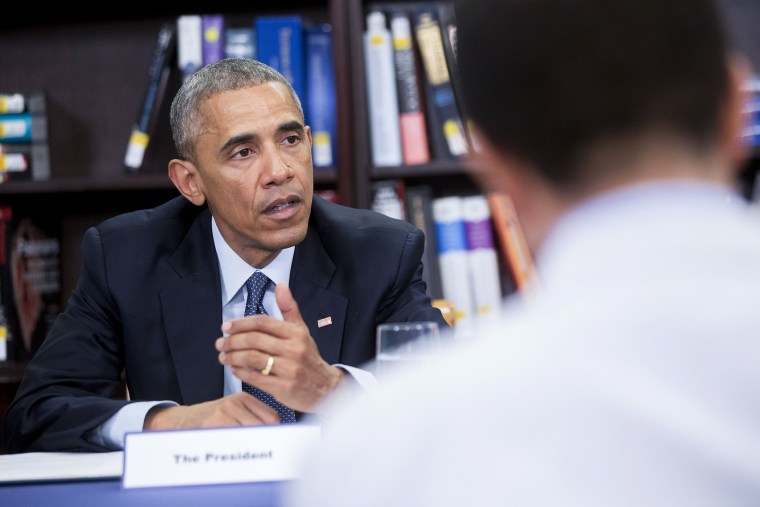President Obama is making the case this week that tackling climate change is more than just an issue of cutting carbon emissions -- it's also about protecting public health.
The White House unveiled a series of initiatives Tuesday to draw attention to the public health issues associated with climate change after America has seen the number of people diagnosed asthma more than double over the last three decades. Major U.S. companies are joining the cause to raise awareness and reduce the health impacts caused by smog, higher temperatures and longer allergy seasons.
RELATED: Jerry Brown on California drought: 'Climate change is not a hoax'
Obama highlighted the initiatives Tuesday at a round-table event at Howard University Medical School Tuesday, joined by Surgeon General Vivek Murthy and the head of the Environmental Protection Agency, Gina McCarthy.
In declaring April 6-12 as National Public Health Week, Obama said vulnerable communities are most at risk of the harmful effects of climate change, including children, the elderly, sick and poor. "We've got to do better in protecting our vulnerable families," Obama said at the event, according to the Associated Press.
In partnership with the federal government, public and private entities have pledged to make health and climate-related data more easily available to the public. Google has agreed to donate 10 million man-hours to map out climate-related data on Google Earth, including visualizations of wildfires and oil flares over time. Microsoft will develop a prototype to detect infectious diseases before they reach the level of an outbreak.
The emphasis on public health builds on the president's blueprints to curb greenhouse gas emissions in the United States by as much as 28% over the next decade. The plan will be outlined in the administration's formal written submission ahead of the United Nations climate change negotiations in Paris this December.
RELATED: California orders unprecedented water rationing to combat drought
Obama secured an ambitious joint-agreement with China last November to tackle climate change, acknowledging that the two countries combined are responsible for about 45% of the world's greenhouse gas emissions. The sweeping plan is a key pillar of Obama's legacy on climate change and foreign policy, but without legislative support from the Republican-led Congress, it's one that relies heavily on a series of executive actions. The most politically controversial measures tasks the Environmental Protection Agency to place strict limits on carbon emissions from vehicles and coal plants.
Obama's unilateral moves on climate change are likely to become a hot-button 2016 issue. Nearly every major GOP presidential prospect has spoken out against the EPA regulations, calling them executive overreach and costly for business. Meanwhile the Democratic Party's near-certain candidate Hillary Clinton has notably defended the action as one that "must be protected at all cost."
